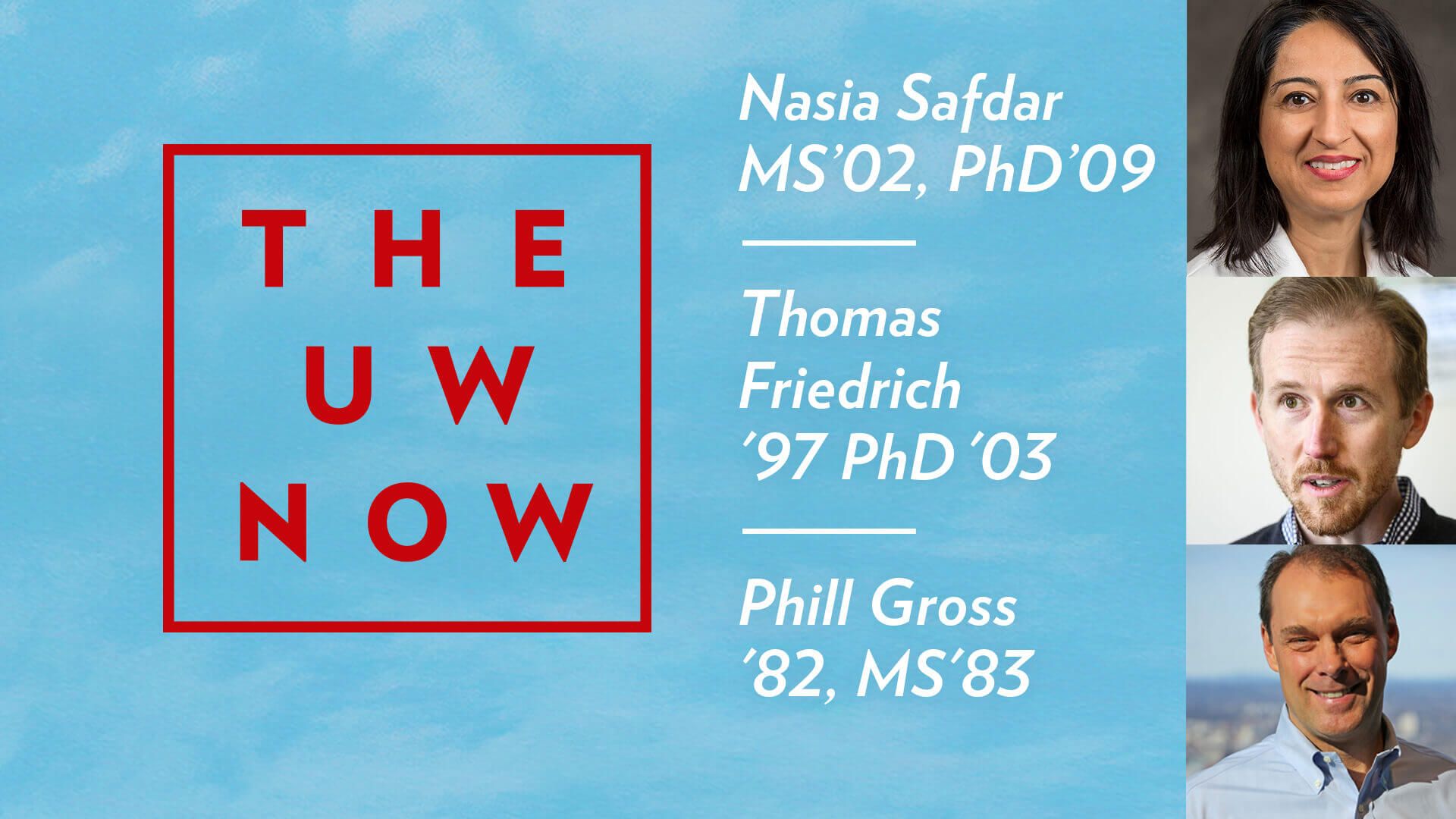Nasia Safdar MS’02, PhD’09 doesn’t think that COVID-19 has pushed the Wisconsin health care system into crisis. But it could get there. In the pandemic’s first half year, the growth in the number of hospitalizations in Wisconsin has been slow, though it continues to rise.
“Even though it’s reassuring that the health system has not been overwhelmed, and demand has not outstripped our capacity,” she said, “this sort of relentless slope has been, and will continue to be, taxing on the system until we have an efficacious vaccine that will help turn the tide.”
Safdar is the vice chair for research in UW–Madison’s Department of Medicine, and she serves as medical director of infection control at UW Hospital and Clinics. During the September 8 UW Now Livestream event, Safdar joined virology professor Thomas Friedrich ’97, PhD’03, and healthcare investor Phill Gross ’82, MS’83, to discuss progress in treatment, testing, and vaccines against COVID-19.
Safdar described advances in treatment and therapeutic research, including studies that indicate that corticosteroids, the antiviral Remdesivir, and convalescent plasma can help improve patient outcomes. “We now have several more options than we did in early March, when we first learned about this pandemic,” she said. “You can see this marked difference in hospitalizations.”
Gross discussed the efforts of various companies to develop a vaccine under the federal government’s Operation Warp Speed. “There’s a lot going on,” he said, though he added a note of caution. “The most important fact for all of us to know is that no matter what, [any] vaccine [available] this fall will only be available to high-risk groups and will have very early safety and efficacy data.”
Friedrich has been working to develop rapid testing capacity, as he sees one of the greatest challenges of the pandemic to be ensuring people have better access to test results. “We may have been thinking about testing incorrectly,” he said. Efforts to develop the most sensitive tests, rather than the fastest, may have left the country unable to act quickly to stop the virus’s spread. He and his laboratory partner, David O’Connor, have developed the “Winnowing Test,” a saliva test that can be evaluated swiftly and identifies those who are most infectious. “We want to be able to maximize the number of infected people whom we rapidly detect in the brief window in which they’re most likely to spread infection to other people,” he said.
The three UW alumni also fielded questions from the hundreds of viewers who watched The UW Now live on YouTube. Mike Knetter, president and CEO of the Wisconsin Foundation and Alumni Association, served as host and moderator.
Ultimately, Safdar said, the best hope for ending the pandemic lies in vaccine development. “We all believe that the greatest success in the last hundred years has been vaccines for preventable conditions,” she said. “And for anyone who doubts that, you only have to go to a less-developed country or to a place where those vaccines aren’t available to see the ravages of those preventable conditions.” To hear more from Friedrich, Safdar, and Gross, view a recording of The UW Now. The series is offered via YouTube and will continue through the fall. The next event, to be held September 22, will cover the future of data science in a conversation with computer sciences professor Remzi Arpaci-Dusseau and Eric Lefkofsky, founder of Groupon.
